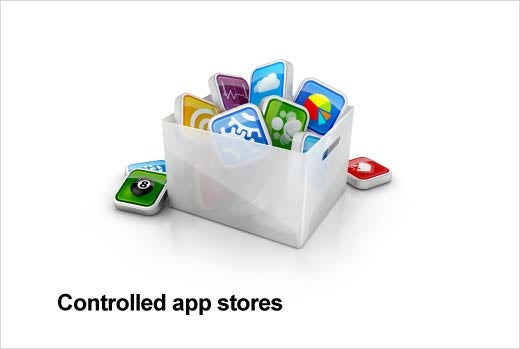BYOD is now a staple in the workplace, forcing IT managers to think past the typical problems (upgrades, training, apps management) first associated with the trend.
While some still struggle to integrate smartphones and tablets into operations, smart IT managers are using the BYOD trend to create innovative new business processes, like using BYOD as a tool to develop client-ready mobile initiatives, or pairing devices with other developing technologies, like embedded sensors, to capture business intelligence.
Hugo Perez, managing director at United Data Technologies, has identified five BYOD realities facing IT managers today.
Click through for five BYOD realities facing IT managers today, as identified by Hugo Perez, managing director at United Data Technologies.
IT managers can no longer ignore BYOD
Employees are the ones driving the BYOD trend within the workplace, simply because they continue to demand it from their employers. As technology evolves and mobile devices continue to take the workplace by storm, employers can no longer ignore BYOD. It’s time they embrace it.
Research shows mobile device computing (not just cell phones) adoption rates are growing by the millions each year. Non-IT professionals, including employees at all levels within organizations, are bringing and using these devices (a.k.a. BYOD) to work.
BYOD technologies enable and better business
IT managers can’t afford to look at technologies as essential tools to help productivity, but rather, they will be forced to pursue advanced business degrees (or certificates) to learn how BYOD and its associated technologies can help their business become more competitive, improve cost-efficiencies, and ultimately enable business across all relevant categories.
Computing strategies like BYOD will also force managers to realize that ‘adoption to change’ and ‘agility’ will continue to be the foundation of their company’s ability to compete and survive beyond the twenty-first century.
Cost savings associated with BYOD/telecommuters help turn IT into a profit center
When properly deployed and professionally monitored and managed, BYOD can help IT managers turn their department into a profit center. How, you ask? BYOD will pressure IT managers to embrace application streaming and virtualization technologies like FlexPod Express and VMWare. These technologies allow for the secure publishing and centralized access to core business systems and software.
Companies, especially those with large call centers, can essentially establish a telecommuting policy to allow employees to work from home using their own computing devices. If employees are offered the flexibility to work from home, they will be happier and their employers will reap huge savings (office space, Internet connectivity, increased-monitored productivity, electricity).
BYOD allows IT managers to establish a 360-degree relationship with their vendors
Initiatives like BYOD and cloud will foster the development of trusting, ‘give-get’ partner relationships between IT managers and their vendors, simply due to the fact that security monitoring and managing IT services is a must, especially for companies that fall in highly regulated industries (i.e., health care, financial, etc.). It’s these relationships that will help IT managers establish service-level agreements (SLAs) and performance metrics to continuously improve the customer experience.
BYOD helps IT managers create and access controlled app stores, allowing users to download pre-approved applications
Once an IT manager has a ‘happy client’ (an average score of 90 percent plus in their quarterly business review (QBR) surveys), they can begin to embrace BYOD and offer specialized and approved software solutions from their corporate AppStore. This not only makes getting the apps easier and faster, but also removes any security concerns that come with employees downloading apps from external sources.








